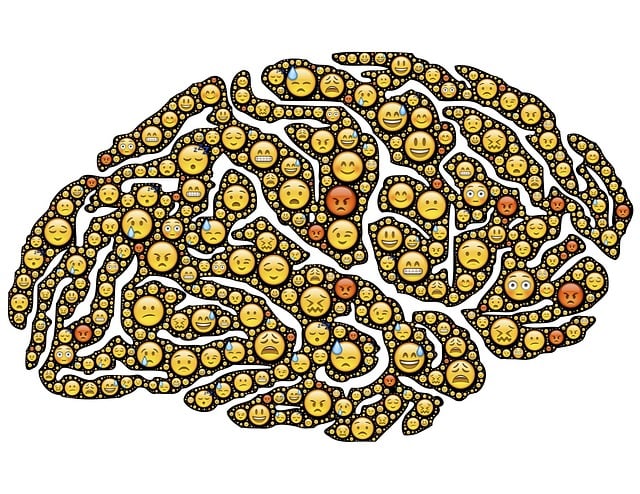Parker Conduct Disorder Therapy (PCDT) leverages cognitive behavioral therapy (CBT), mindfulness, self-awareness, and emotional vocabulary development as powerful tools to manage conduct disorders. CBT identifies and changes negative thought patterns, improving decision-making. Mindfulness techniques ground individuals in the present, reducing impulsivity and aggression. Self-awareness exercises and journaling help recognize triggers and employ coping strategies. Integrating these approaches into PCDT enhances emotion regulation, fosters healthier communication, and contributes to improved mental health outcomes, as supported by research and advocacy in mental health policy analysis.
Emotion regulation techniques are pivotal in managing conduct disorders, especially in the context of Parker Conduct Disorder Therapy. This article delves into the profound impact of emotion regulation on disruptive behaviors, highlighting the effectiveness of Cognitive Behavioral Therapy (CBT) in teaching essential skills. We explore mindfulness-based approaches to curb impulsivity and aggression, along with strategies to enhance self-awareness and emotional vocabulary. By integrating these techniques into Parker Conduct Disorder Therapy, professionals can empower individuals to navigate their emotions effectively, leading to improved conduct and overall well-being.
- Understanding Emotion Regulation and Its Impact on Conduct Disorders
- The Role of Cognitive Behavioral Therapy in Teaching Emotion Regulation Skills
- Mindfulness-Based Approaches for Managing Impulsivity and Aggression
- Strategies for Enhancing Self-Awareness and Emotional Vocabulary
- Practical Implementation: Integrating Emotion Regulation Techniques into Parker Conduct Disorder Therapy
Understanding Emotion Regulation and Its Impact on Conduct Disorders

Emotion regulation is a vital skill that plays a significant role in managing behavioral and conduct disorders. For individuals with conditions like Parker Conduct Disorder Therapy, understanding and controlling emotions can be transformative. This process involves recognizing and accepting feelings while learning to respond adaptively rather than reacting impulsively. By developing emotional regulation techniques, individuals gain better control over their actions, improving their overall well-being and social interactions.
Effective emotion regulation strategies have proven to be game-changers in treating conduct disorders. It helps reduce impulsive behaviors, aggression, and emotional outbursts often associated with these conditions. Through therapy, clients can learn to identify triggers, develop coping mechanisms, and build resilience, leading to improved self-control and a boost in confidence. Trauma support services are also integral to this process, as many conduct disorders stem from underlying trauma, and addressing these issues is essential for long-term success.
The Role of Cognitive Behavioral Therapy in Teaching Emotion Regulation Skills

Cognitive Behavioral Therapy (CBT) plays a pivotal role in teaching emotion regulation skills, particularly for individuals dealing with conditions like conduct disorder, as highlighted by Parker Conduct Disorder Therapy. CBT focuses on identifying and changing negative thought patterns and behaviors that contribute to emotional dysregulation. By helping individuals understand the connection between thoughts, feelings, and actions, CBT empowers them to manage their emotions more effectively.
Through structured techniques, CBT encourages positive thinking and reframing cognitive distortions. This process facilitates improved decision-making and reduces impulsive behaviors often associated with conduct disorder. Furthermore, social skills training becomes an integral part of CBT, teaching individuals how to interact assertively, interpret social cues accurately, and respond appropriately in various situations, thereby enhancing their overall emotional regulation capabilities.
Mindfulness-Based Approaches for Managing Impulsivity and Aggression

Mindfulness-based approaches have emerged as powerful tools within Parker Conduct Disorder Therapy, offering a promising avenue for managing impulsivity and aggression. These techniques encourage individuals to focus on the present moment, cultivating awareness of their thoughts, emotions, and bodily sensations without judgment. By fostering a sense of detachment from impulsive or aggressive urges, mindfulness practices enable better emotional regulation. Research suggests that regular mindfulness training can significantly reduce symptoms of conduct disorder, promoting healthier emotional healing processes.
Incorporating mindfulness into therapy not only aids in managing acute aggressive episodes but also supports long-term mental illness stigma reduction efforts. By learning to observe and accept their emotions, individuals gain valuable coping skills for anxiety relief and stress management. This, in turn, contributes to improved overall well-being and enhanced relationships, as individuals become more attuned to their own needs and better equipped to navigate challenging situations calmly and constructively.
Strategies for Enhancing Self-Awareness and Emotional Vocabulary

Developing self-awareness is a cornerstone of emotion regulation techniques teaching. Encouraging individuals to recognize their emotional states and triggers can be facilitated through various methods, such as mindfulness exercises and reflective journaling. By practicing these skills, individuals with conditions like Parker Conduct Disorder can learn to identify when they are experiencing intense emotions, enabling them to employ coping strategies before reactions escalate. This proactive approach not only benefits individual well-being but also fosters better relationships by promoting healthier communication and understanding.
Expanding emotional vocabulary is another key strategy. Teaching individuals to label their feelings accurately enhances their ability to understand and manage these emotions effectively. This process can be supported through interactive activities, storytelling, or even games designed to introduce a wide range of emotional experiences. By embracing Self-Care Practices and participating in Stress Management Workshops Organization, individuals gain valuable tools for navigating life’s challenges, ultimately contributing to improved mental health outcomes as reflected in the broader Mental Health Policy Analysis and Advocacy discourse.
Practical Implementation: Integrating Emotion Regulation Techniques into Parker Conduct Disorder Therapy

Integrating emotion regulation techniques into Parker Conduct Disorder Therapy (PCDT) offers a practical and effective approach to addressing challenging behaviors often associated with this disorder. PCDT, known for its behavioral interventions, can be enhanced by incorporating strategies that foster emotional awareness and self-control. Compassion cultivation practices, such as mindfulness meditation, have shown promise in promoting mental wellness and reducing aggression. These practices encourage individuals to develop a non-judgmental awareness of their emotions, fostering a sense of calm and understanding.
Mental Wellness Journaling Exercise Guidance can be tailored to help individuals with PCDT reflect on their emotional experiences. By documenting feelings and triggers, they gain insights into their emotional patterns, enabling them to anticipate and manage intense emotions. Additionally, encouraging positive thinking through affirmations or gratitude practices can counteract negative thought cycles. These techniques contribute to a holistic approach in PCDT, enhancing the individual’s ability to navigate and regulate their emotions effectively.
Emotion regulation techniques offer a promising avenue for managing conduct disorders, particularly Parker Conduct Disorder Therapy. By integrating cognitive behavioral therapy, mindfulness practices, and self-awareness strategies, professionals can empower individuals to navigate their emotions effectively. These techniques not only enhance self-control but also foster healthier relationships and improve overall well-being. Through practical implementation, as demonstrated in the context of Parker Conduct Disorder Therapy, these methods have the potential to revolutionize treatment approaches and significantly impact positive behavior change.














